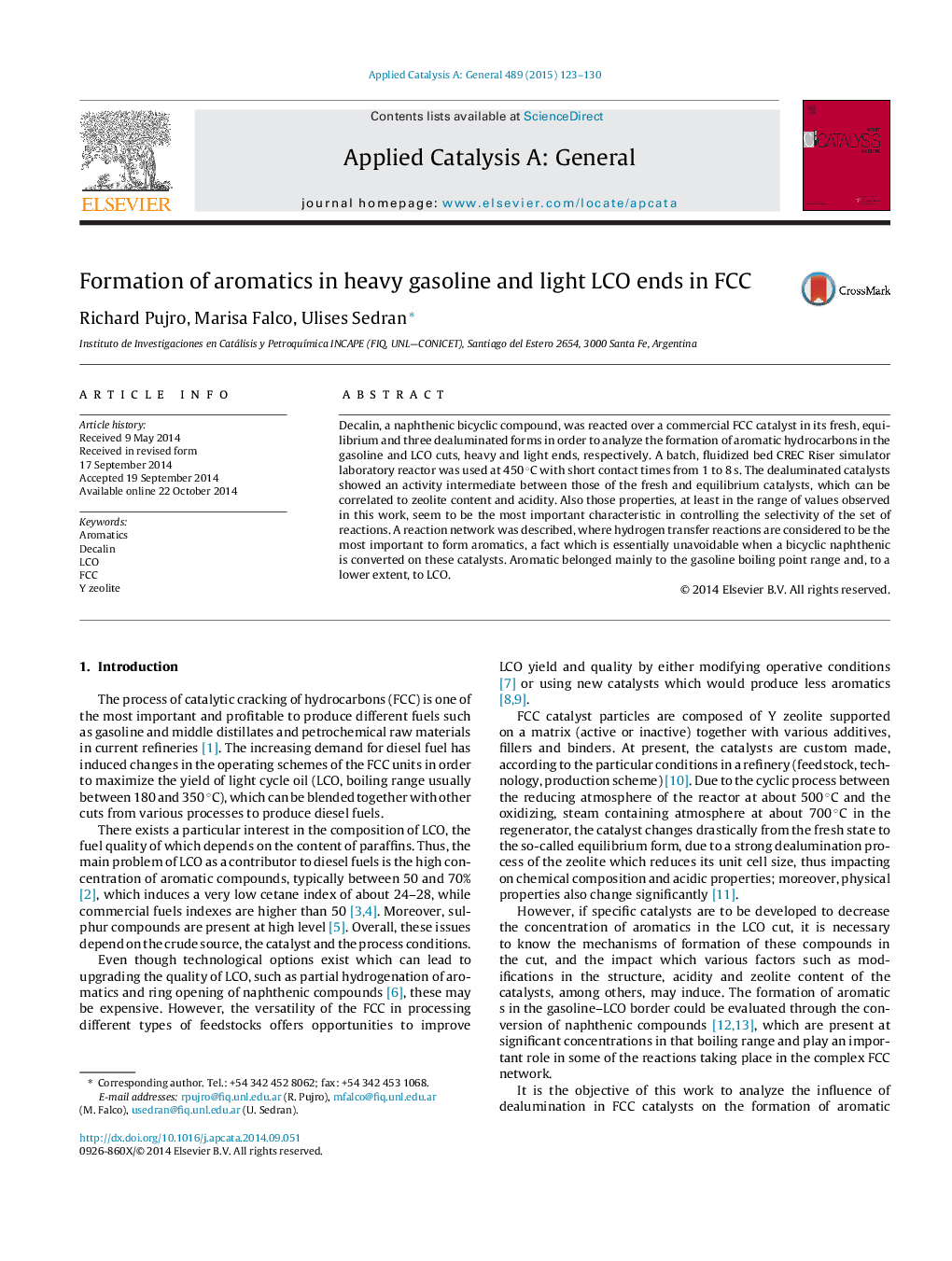| کد مقاله | کد نشریه | سال انتشار | مقاله انگلیسی | نسخه تمام متن |
|---|---|---|---|---|
| 39401 | 45822 | 2015 | 8 صفحه PDF | دانلود رایگان |

• Decalin as a test compound to study aromatics formation from naphthenics in FCC.
• The zeolite content and amount of acidic sites controls both activity and selectivity of dealuminated catalysts.
• The production of aromatics from bicyclic naphthenics is essentially unavoidable.
• Aromatic hydrocarbons belong mainly to the gasoline boiling point range.
Decalin, a naphthenic bicyclic compound, was reacted over a commercial FCC catalyst in its fresh, equilibrium and three dealuminated forms in order to analyze the formation of aromatic hydrocarbons in the gasoline and LCO cuts, heavy and light ends, respectively. A batch, fluidized bed CREC Riser simulator laboratory reactor was used at 450 °C with short contact times from 1 to 8 s. The dealuminated catalysts showed an activity intermediate between those of the fresh and equilibrium catalysts, which can be correlated to zeolite content and acidity. Also those properties, at least in the range of values observed in this work, seem to be the most important characteristic in controlling the selectivity of the set of reactions. A reaction network was described, where hydrogen transfer reactions are considered to be the most important to form aromatics, a fact which is essentially unavoidable when a bicyclic naphthenic is converted on these catalysts. Aromatic belonged mainly to the gasoline boiling point range and, to a lower extent, to LCO.
Figure optionsDownload high-quality image (109 K)Download as PowerPoint slide
Journal: Applied Catalysis A: General - Volume 489, January 2015, Pages 123–130